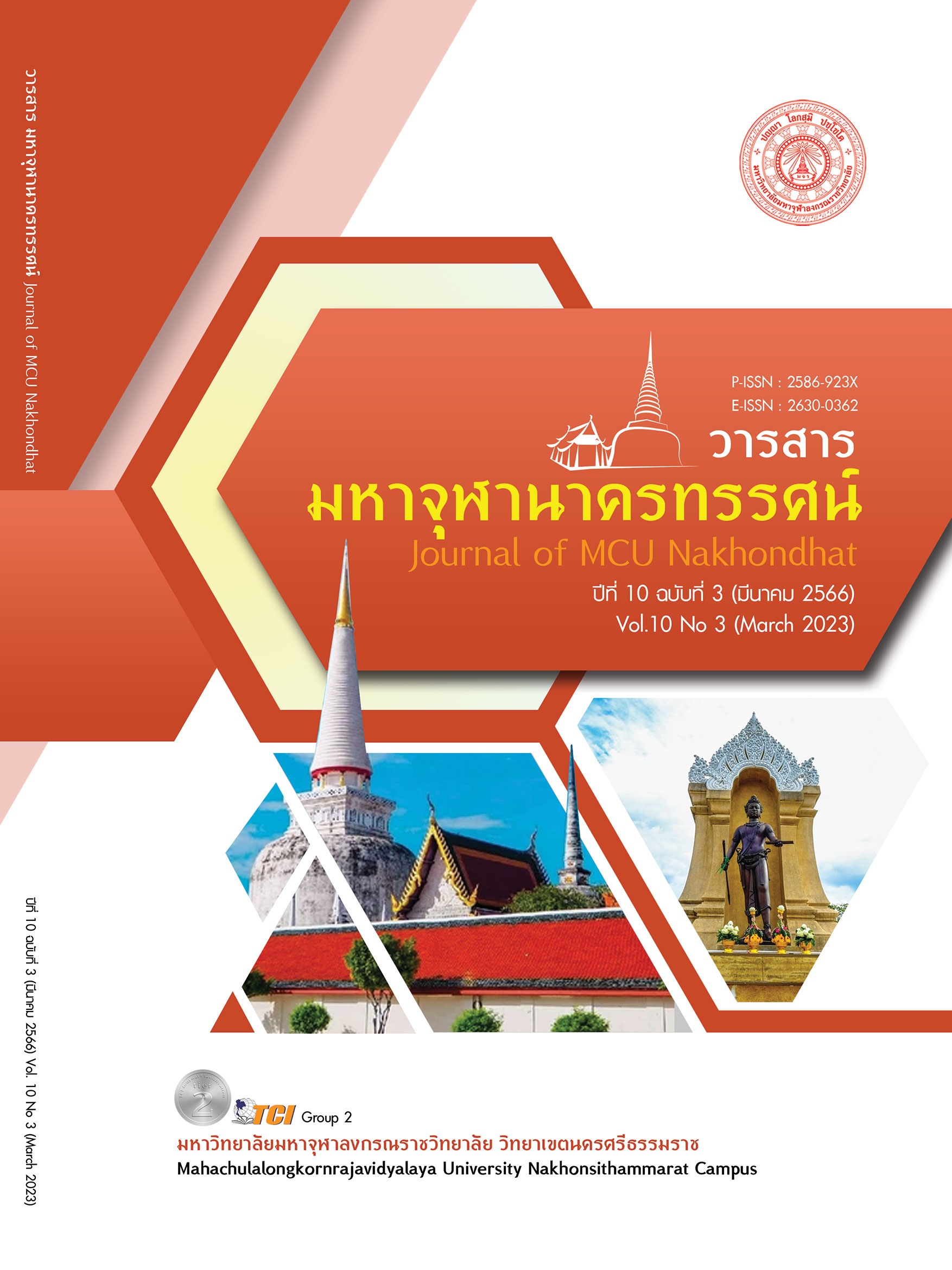INNOVATIVE PROCESS FOR HIGHER-ORDER THINKING SKILL DEVELOPMENT IN DIGITAL CLASSROOM MANAGEMENT
Main Article Content
Abstract
The objectives of this research article were to study the combination of high-level thinking skills of learners from doing. Classroom activities according to the teaching plan process developed for use in digital learning management. Including interviews on the teaching process of high thinking skills of the faculty in all 8 subject categories. The tools used for data collection were 1) in-depth interviews, 2) observation forms, and 3) small group meetings. with document data analysis And the analysis of data from in-depth interviews was used to separate the main issues according to the structure of questions and small group meetings. The results showed that Innovative process to develop high thinking skills in digital learning management. It requires development in multiple dimensions to integrate higher-level thinking. by integrating the development of problem-solving skills development of analytical thinking skills Most of the activities are in the form of answering questions on the worksheets. which found a problem that organizing activities in the form of answering questions on the worksheet could not be organized continuously Therefore, the development of analytical thinking skills can only be effective for some children. Developing creative and positive thinking skills There are many forms of digital learning management. Learners enjoy learning in various ways according to the learning process. by using the learning theory creative with intelligence (Constructionism) Higher thinking skills in digital learning management should be promoted to be consistent with the context of the subject group. to make the learners integrate their thinking skills until finally becoming a higher level of thinking.
Article Details

This work is licensed under a Creative Commons Attribution-NonCommercial-NoDerivatives 4.0 International License.
References
เกศรา คณฑา และคณะ. (2560). การพัฒนาทักษะการคิดแก้ปัญหา เรื่อง กฎหมายน่ารู้ ด้วยการจัดการเรียนรู้แบบกรณีศึกษาของนักเรียนชั้นมัธยมศึกษาปีที่ 4. Viridian E-Journal, Silpakorn University, 10(2), 1180-1197.
ถิตรัตน์ พิมพาภรณ์ และประสพชัย พสุนนท์. (2559). องค์ประกอบความสุขการทำงานของพนักงานระดับปฏิบัติการในธุรกิจโรงแรมเมืองพัทยา. วารสารวิชาการ Veridian E-Journal, 9(1), 121-139.
นิภา แก้วศรีงาม. (2547). ความคิดเชิงบวก (Positive Thinking) พึงคิดว่าทุกปัญหามีทางออก ไม่ใช่ ทุกทางออกเป็นปัญหา. วารสารวงการครู, 1(12), 76–78.
บัญญพนต์ พูนสวัสดิ์. (2559). Digital Natives นักเรียนยุคดิจิทัลกับห้องเรียนบน M-Learning. เรียกใช้เมื่อ 22 มีนาคม 2565 จาก http://www.digitaleagenmag.com
พิชญา เขียดสังข์. (2562). ผลการจัดการเรียนรู้โดยใช้ปัญหาเป็นฐานร่วมกับบทเรียนอีเลิร์นนิง เพื่อเพิ่มผลสัมฤทธิ์ทางการเรียนเรื่อง การเขียนโปรแกรมแก้ปัญหา ชั้นมัธยมศึกษาปีที่ 4. วารสารวิจัยและพัฒนาหลักสูตร, 10(2), 195-203.
พิทักษ์ สุพรรโณภาพ. (2561). การคิดเชิงบวก : ตัวแปรในการพัฒนาชีวิต. Veridian E-Journal Silpakorn University, 11(3), 1958-1978.
วิลาวรรณ ปั้นหุ่น และมนัสนันท์ น้ำสมบูรณ์. (2558). การศึกษาผลการเรียนรู้และทักษะการคิดขั้นสูงเรื่อง เศรษฐศาสตร์น่ารู้ ของนักเรียนชั้นมัธยมศึกษาปีที่ 5 โดยการจัดการเรียนรู้ด้วยรูปแบบชิปปา. Veridian E-Journal Slipakorn University, 8(2), 1144-1160.
Chatthip Chumphong. (2002). The relationship between emotional competence and stress coping behavior of high school students of schools under the Department of General Education in Songkhla Province. In Thesis Master of Social Work Department of Social Work graduate school. Thammasat University.
Kanyathon P. (2559). Digital Natives and M-Learning. Retrieved May 5 , 2021, from https://www.digitaleagemag.com
Phra Paisan Visalo. (2011). Happiness of students for the wisdom of the land. In research report. Mahidol University.


